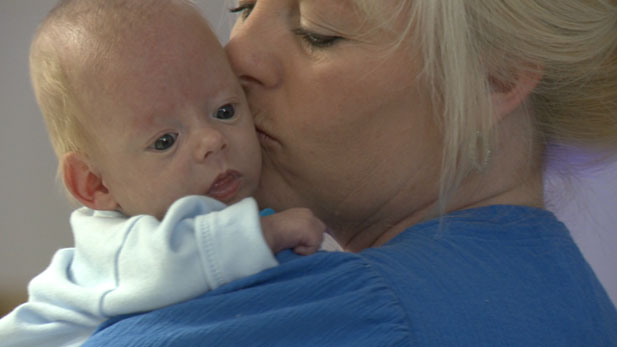 A program at TMC collects the cord blood of babies at high risk for cerebral palsy in hopes that the blood's stem cells could one day treat the disease.
A program at TMC collects the cord blood of babies at high risk for cerebral palsy in hopes that the blood's stem cells could one day treat the disease.More than 15 years ago, the Tucson-based company Cord Blood Registry or CBR began banking babies' cord blood stem cells, mostly to treat illnesses such as pediatric cancers, leukemia and some rare genetic disorders.
Cord blood is blood that is drained from the umbilical cord after it is cut from the baby. Today, according to Dr. Hugh Miller at Tucson Medical Center, "there is some anecdotal evidence that these cord blood cells may be able to rejuvenate or restore damaged tissue" in other diseases as well.
With that in mind, Miller has spearheaded a program to identify babies who may be at risk of developing cerebral palsy, a neurological disease that can start in the womb or can develop in the first few years of life. In conjunction with CBR, the program offers to store the babies' cord blood for free for five years.
If the baby shows signs of cerebral palsy, he or she will be treated with the cord blood in a national clinical trial.
While doctors insist there is no clear evidence yet that cord blood has the capacity to improve neurologic problems, Miller says, "there's a lot of excitement about this."
"It is not proven," says Miller, "but there is certainly the promise that it might have a benefit, and that's worth exploring."

By submitting your comments, you hereby give AZPM the right to post your comments and potentially use them in any other form of media operated by this institution.